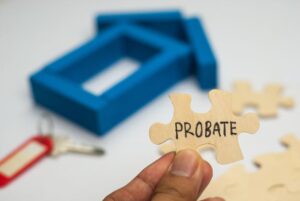Changing A Will After Someone Has Died
 A Deed of Variation can be used to change a Will, or alter the outcome of the rules of intestacy, after someone has died.
A Deed of Variation can be used to change a Will, or alter the outcome of the rules of intestacy, after someone has died.
Why Use A Deed Of Variation?
A document that is used by the beneficiaries of an estate to redistribute assets they are due to inherit, a Deed of Variation is useful if the outcome of a Will or the rules of intestacy are seen as unfair by the beneficiaries.
There are many scenarios when a Deed of Variation is appropriate to use, including:
- If a family member has been excluded
For example, if a Will or the rules of intestacy results in a child or a dependent being left out who the deceased would have wanted to benefit from the estate, you might choose to redirect some of your share of the inheritance to this person. - Not needed
If you don’t need your share of the inheritance but a family member does, you might choose to redirect it to them. - Charitable donation
You might want to give some of your inheritance to charity.
Why Not Just Gift Your Share Yourself?
By gifting your share of inheritance through a Deed of Variation, you are able to avoid any tax implications involved by ensuring the gift is from the deceased rather than from you.
This means you don’t need to survive for 7 years after making the gift to avoid inheritance tax and capital gains tax liability on your estate when you die.
It also means you can take advantage of any available tax benefits at the time of gifting. For example, if property is redirected to a direct descendant, then the estate can use their Residence Nil Rate Band allowance if property was not previously being gifted to a direct descendant. Or if 10% of the estate is redirected to be gifted to a charity, the inheritance tax rate for the estate would decrease from 40% to 36%, which could result in big savings for the beneficiaries.
Another option is to redirect any inheritance into a trust to provide asset protection for future generations. This may also reduce tax liability for the estate.
How Can You Use A Deed Of Variation?
A beneficiary can only change the distribution of their share of the estate and not the shares of other beneficiaries.
Beneficiaries can choose to redirect their inheritance so that they all give a share of their inheritance to the individual or charity, or a beneficiary can choose to give a share of their inheritance – either way, the agreement of anyone else affected by the decision is needed for this to happen.
To use a Deed of Variation, the redistribution must be agreed by any beneficiaries who are impacted by the changes. All those affected must be over the age of 18.
The Deed of Variation needs to be signed by the Will executor or by the administrator of the estate.
When Can You Use A Deed Of Variation?
You can make a change using a Deed of Variation before or after obtaining a Grant of Probate. It must be within 2 years of the deceased’s death to take advantage of any potential tax benefits.
How We Can Help You With Your Deed Of Variation
Our specialist Wills and probate solicitors can help you when it comes to changing a Will or the outcome of the rules of intestacy after someone has passed away.
We can advise you on the appropriateness of using a Deed of Variation to redistribute assets you’re due to inherit, as well as help you in the creation of one.
With our help and guidance, you’ll be able to make any changes to the Will or outcome of intestacy to redirect your inheritance or redistribute a share of your inheritance, in the most straightforward and tax efficient way possible.
 As a guide, you should conduct a thorough search to try to find the Will before assessing your options – depending on the outcome of your search, you might need to seek legal advice to distribute the estate according to your loved one’s wishes and ensure the rules of intestacy do not apply.
As a guide, you should conduct a thorough search to try to find the Will before assessing your options – depending on the outcome of your search, you might need to seek legal advice to distribute the estate according to your loved one’s wishes and ensure the rules of intestacy do not apply. A legal document, probate provides the right for an individual to distribute an estate and complete the process of probate – also referred to as estate administration.
A legal document, probate provides the right for an individual to distribute an estate and complete the process of probate – also referred to as estate administration. However, gifting property to children needs to be carefully structured as the rules are complex and the benefits won’t automatically arise from giving away your assets.
However, gifting property to children needs to be carefully structured as the rules are complex and the benefits won’t automatically arise from giving away your assets. What Is A Blended Family?
What Is A Blended Family? service of a specialist probate solicitor provides total peace of mind – not only thanks to knowing your loved one’s wishes will be fully respected and fulfilled but also from the assurance that as an executor/administrator you are carrying out your duties in the correct and most efficient way.
service of a specialist probate solicitor provides total peace of mind – not only thanks to knowing your loved one’s wishes will be fully respected and fulfilled but also from the assurance that as an executor/administrator you are carrying out your duties in the correct and most efficient way. Inheritance tax is unfortunately a fact of life but the good news is you can take steps to minimise the amount your loved ones have to pay after you die.
Inheritance tax is unfortunately a fact of life but the good news is you can take steps to minimise the amount your loved ones have to pay after you die. Research by wealth management company Charles Stanley provides some interesting insights into British attitudes towards making wills and receiving bequests. Slightly more than two thirds (68%) of UK adults intended to divide their assets evenly among their children, however, 16% said they would not do so, while a further 16% remained undecided. Reasons given for not splitting wealth equally included the differing personal circumstances of children, and how close relations were between parents and children later in life.
Research by wealth management company Charles Stanley provides some interesting insights into British attitudes towards making wills and receiving bequests. Slightly more than two thirds (68%) of UK adults intended to divide their assets evenly among their children, however, 16% said they would not do so, while a further 16% remained undecided. Reasons given for not splitting wealth equally included the differing personal circumstances of children, and how close relations were between parents and children later in life.